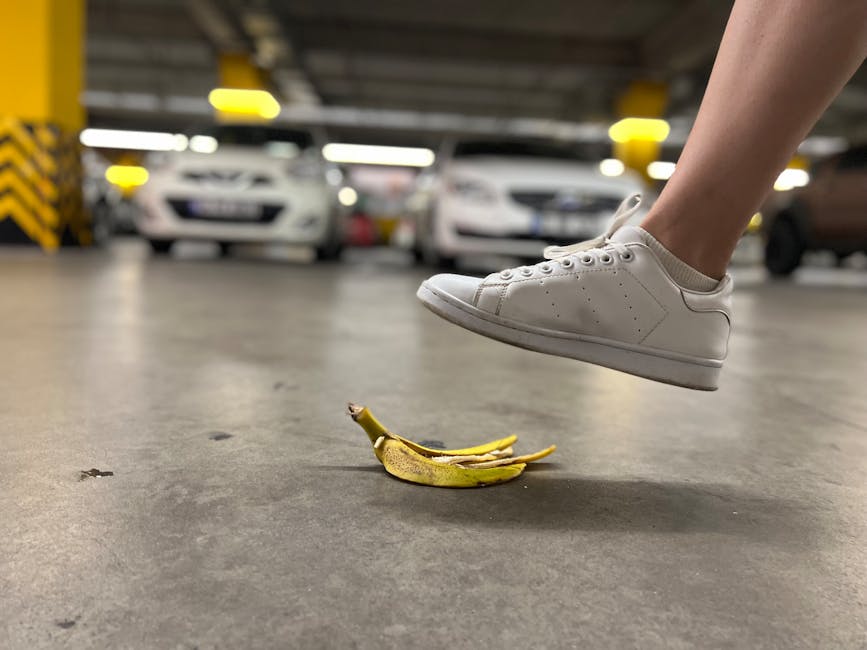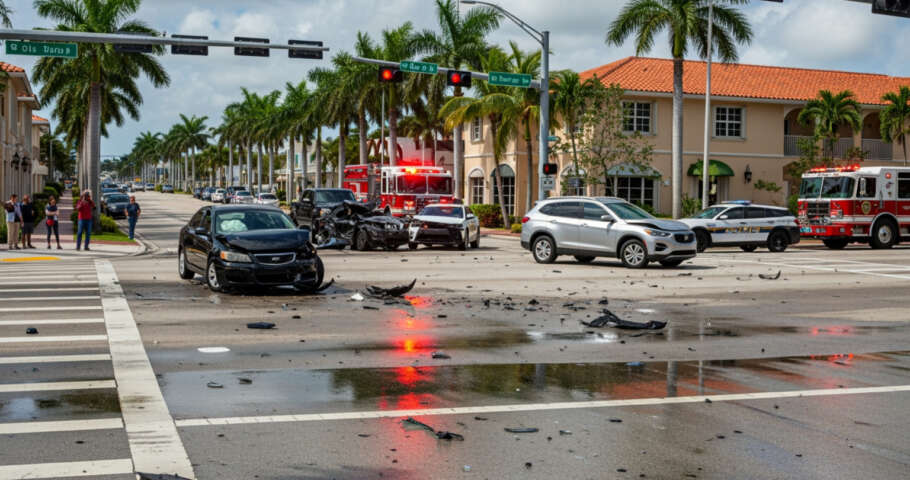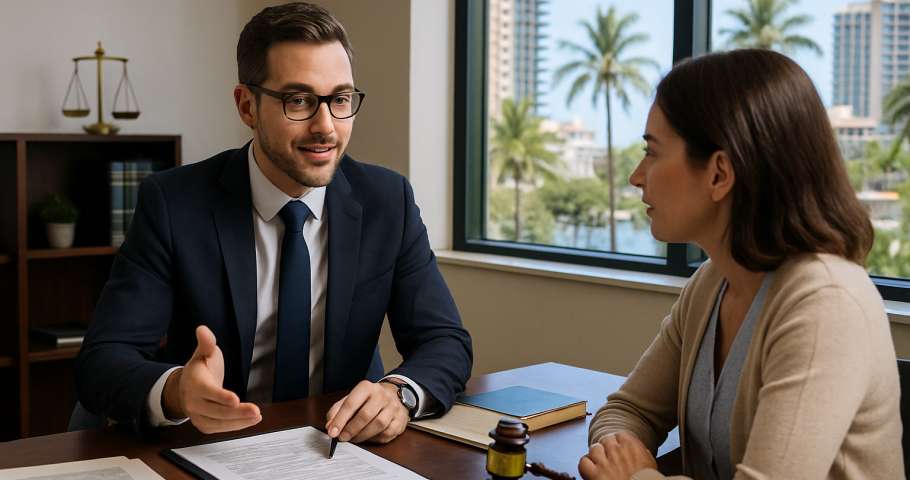When You Need a Florida Premises Liability Attorney
If you’re searching for a Florida premises liability attorney, here’s what you need to know:
- Definition: Premises liability refers to a property owner’s legal responsibility for injuries that occur on their property due to unsafe conditions
- When to hire: You should contact an attorney immediately after suffering an injury on someone else’s property
- Time limit: Florida has a 2-year statute of limitations for premises liability claims
- Types of cases: Slip and falls, negligent security, swimming pool accidents, dog bites, and more
- Compensation: You may recover medical bills, lost wages, pain and suffering, and other damages
Every year in Florida, thousands of people are injured because property owners fail to maintain safe premises. Whether it’s a slip and fall at a grocery store, a drowning incident at a poorly secured pool, or an assault due to inadequate security, these accidents can result in serious injuries and overwhelming medical bills.
As a property owner in Florida, the law requires you to keep your premises reasonably safe for visitors. This means regularly inspecting for hazards, promptly fixing dangerous conditions, and warning about risks that can’t be immediately addressed. When owners neglect these duties, they can be held legally responsible for resulting injuries.
Unfortunately, proving premises liability isn’t always straightforward. Property owners and their insurance companies often fight these claims aggressively, trying to shift blame to the injured person. This is where having an experienced Florida premises liability attorney becomes essential.
At DiStefano Law LLC, we understand how a sudden injury can upend your life. Medical bills pile up while you’re unable to work, and insurance adjusters pressure you to accept lowball offers. You need someone who knows Florida’s premises liability laws inside and out and will fight for the full compensation you deserve.
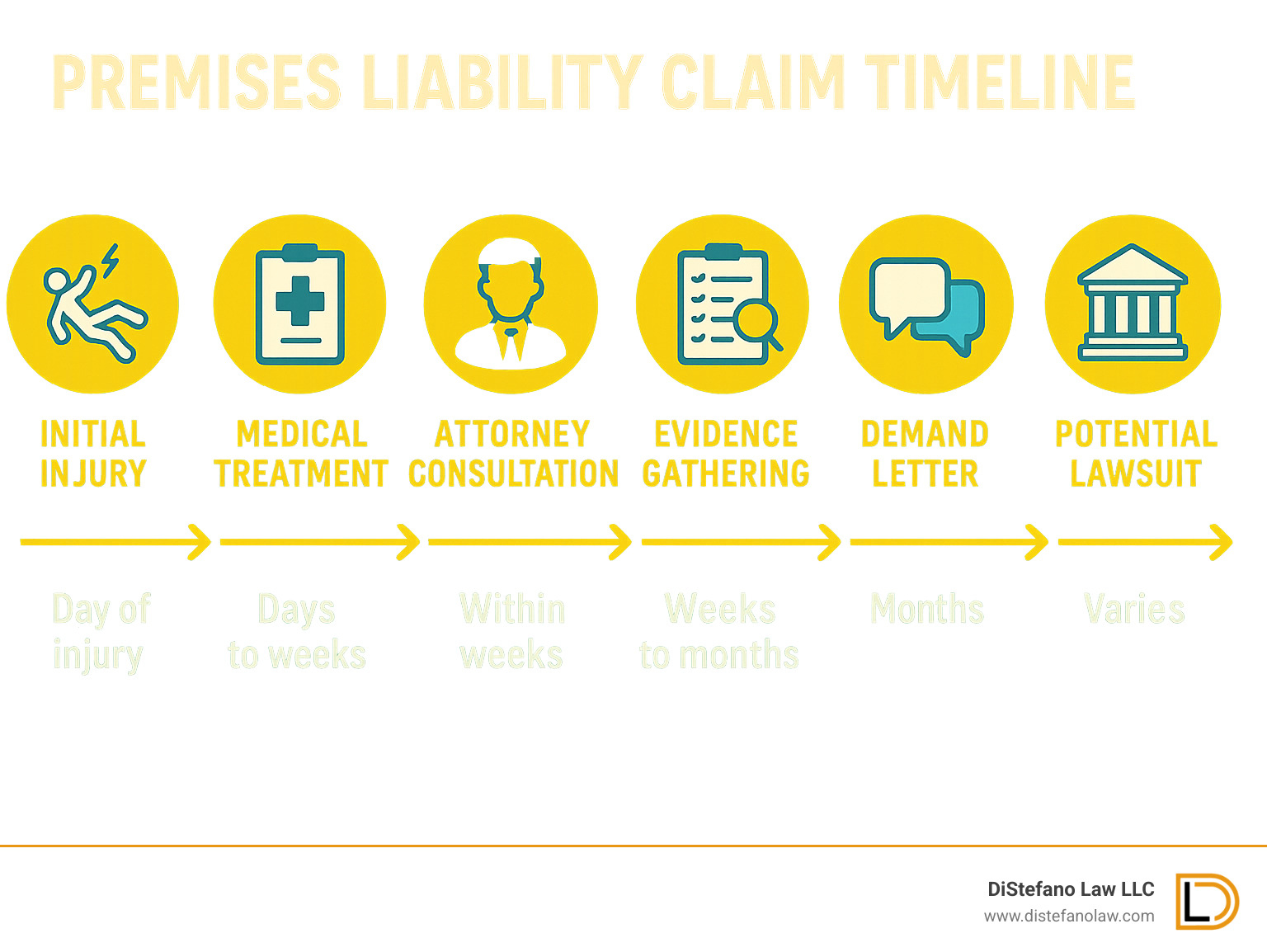
Understanding Premises Liability in Florida
When you visit a store, friend’s home, or any property in Florida, there’s an invisible legal relationship that begins the moment you step foot on the premises. This relationship—known as premises liability—could become extremely important if you’re injured during your visit.
Premises liability is the legal principle that holds property owners responsible when someone is injured due to unsafe conditions. In Florida, these laws combine traditional common law principles with specific state statutes designed to protect visitors.
At the heart of premises liability is the “duty of care”—a property owner’s legal obligation to keep their property reasonably safe. But here’s where it gets interesting: not everyone who enters a property is entitled to the same level of protection under Florida law.
Florida recognizes three distinct visitor categories, each with different levels of protection:
Invitees are given the highest level of protection. These are people invited onto the property for business purposes—shoppers at the mall, patients at a doctor’s office, or guests at a hotel. If you’re an invitee, property owners must regularly inspect for hazards, promptly fix dangerous conditions, and warn you about risks they can’t immediately address.
Licensees receive moderate protection. These are social guests or people entering for their own convenience with permission, like friends visiting your home for dinner. Property owners must warn licensees about known dangers that aren’t obvious but don’t have to actively search for potential hazards.
Trespassers receive minimal protection. If you’re on property without permission, the owner generally only has to avoid intentionally or recklessly harming you. However, there’s a major exception for children, which we’ll cover shortly.
| Visitor Type | Duty to Inspect | Duty to Repair | Duty to Warn | Protection from Third-Party Crime |
|---|---|---|---|---|
| Invitee | Yes – Regular inspections required | Yes – Must fix known hazards | Yes – For all non-obvious dangers | Yes – If crime is foreseeable |
| Licensee | No – No duty to inspect | Yes – For known dangers | Yes – For known, non-obvious dangers | Limited – Only in some circumstances |
| Trespasser | No – No duty to inspect | No – No duty to repair | No – Except for “attractive nuisances” | No – No duty to protect |
Two key concepts often determine whether a property owner is liable for an injury: foreseeability and notice.
Foreseeability asks whether the owner could reasonably anticipate that an injury might occur. If a grocery store manager knows the ice machine regularly leaks water onto the floor but does nothing about it, slip-and-fall injuries become foreseeable.
Notice refers to whether the owner knew (actual notice) or should have known (constructive notice) about the dangerous condition. A spill that has been on the floor for hours creates constructive notice—the owner should have finded it during routine inspections.
The Legal Elements You Must Prove
If you’ve been injured on someone else’s property, a Florida premises liability attorney will need to help you establish four critical elements:
-
Ownership/Control: You must prove the defendant owned, occupied, or controlled the property. This might seem straightforward, but it can get complicated with leased properties, multiple owners, or management companies.
-
Breach of Duty: You’ll need to show the property owner failed to meet their duty of care by not maintaining safe conditions, repairing known hazards, or providing adequate warnings.
-
Causation: The breach directly caused your injury. This means proving your injury wouldn’t have happened if the property owner had fulfilled their responsibilities.
-
Damages: You suffered actual harm—medical bills, lost wages, pain and suffering, or other losses.
Each element requires supporting evidence. At DiStefano Law LLC, we help gather this evidence, working with experts when necessary to build the strongest possible case.
Special Rules for Children & Attractive Nuisance
Florida law recognizes that children don’t perceive dangers the same way adults do. The “attractive nuisance doctrine” creates special protections for children, even when they’re technically trespassing.
Under this doctrine, property owners may be liable for injuries to child trespassers when:
1. A dangerous condition exists that’s likely to attract children
2. The owner knows or should know children might trespass
3. The condition poses an unreasonable risk to children
4. Children, due to their age, don’t recognize the danger
5. The burden of eliminating the danger is small compared to the risk
6. The owner fails to take reasonable precautions
Swimming pools represent the classic attractive nuisance in Florida. With over one million swimming pools—more than any other state—Florida sadly leads the nation in drowning deaths. Each year, approximately 300 children under age 5 drown in pools nationwide, with Florida accounting for a disproportionate number of these tragedies.
Florida law requires specific safety measures for residential swimming pools, including barriers at least 4 feet high, self-closing gates that open outward, alarms on doors with direct pool access, and safety covers when pools aren’t in use.
Other common attractive nuisances include trampolines, construction equipment, abandoned appliances, and decorative water features. Property owners with these items must take extra precautions to prevent unsupervised children from accessing them.
If your child has been injured by an attractive nuisance, a Florida premises liability attorney can help determine if the property owner failed to meet their legal obligations.
Common Premises Liability Accidents in Florida
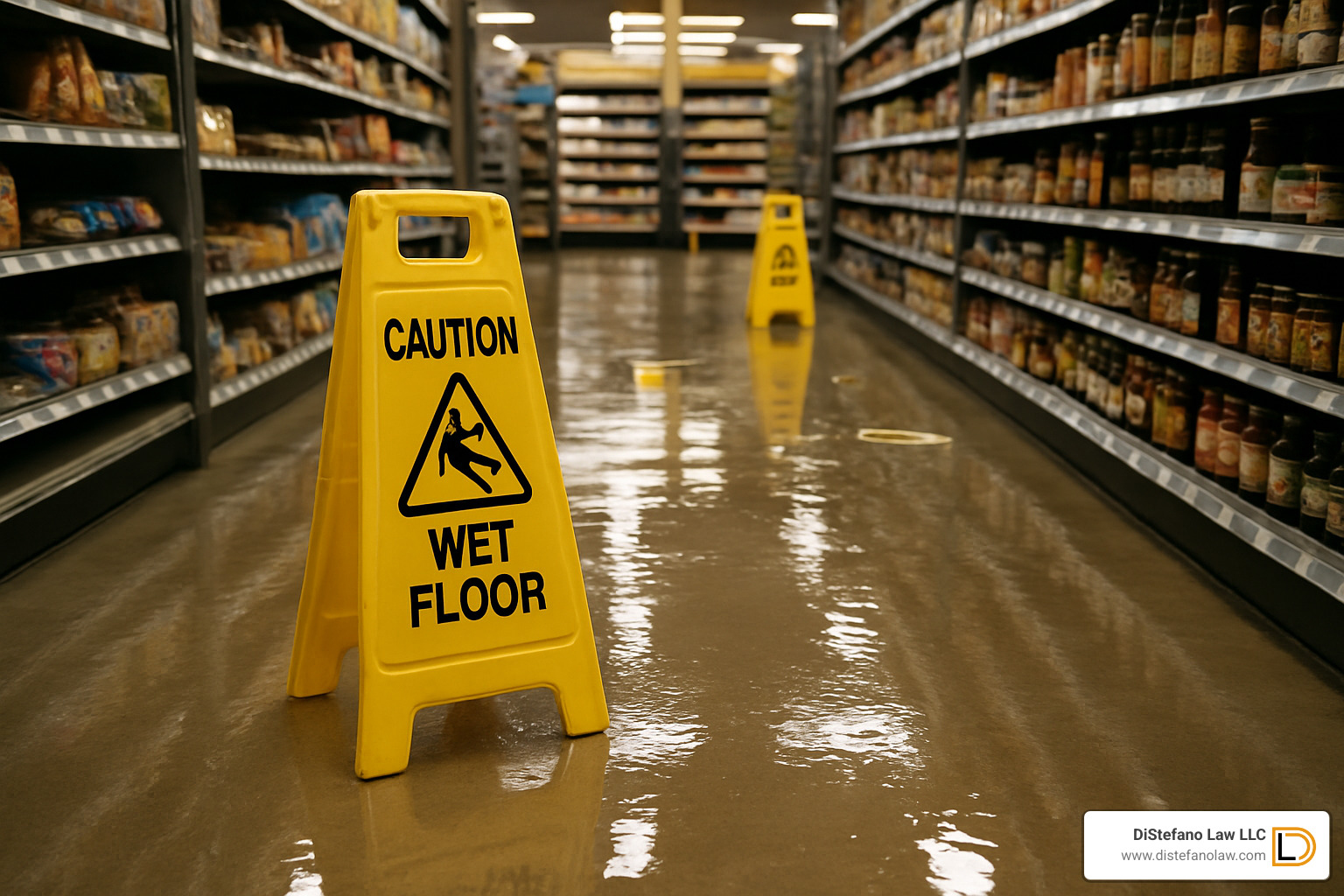
Florida’s unique blend of year-round tourism, outdoor activities, and diverse properties creates the perfect storm for premises liability accidents. From busy theme parks to quiet residential communities, dangerous conditions can lurk anywhere.
Slip-and-Fall & Trip-and-Fall Hotspots
Let’s face it—we’ve all had that heart-stopping moment when our foot slides unexpectedly on a wet surface. Slip and fall accidents are the most common premises liability claims in Florida, and they can happen virtually anywhere.
Grocery stores are particularly notorious for these incidents. Picture this: you’re browsing the produce section when suddenly you’re on the floor because someone dropped a grape three minutes ago. Those freshly mopped floors without proper warning signs aren’t much better!
Hotels and resorts present their own hazards. That neat marble bathroom floor becomes treacherously slippery when wet. And how many times have you stumbled on a poorly lit stairwell after a day at the beach?
Shopping malls add another layer of risk with their merchandise displays jutting into walkways and those subtle changes in flooring that catch your toe at just the wrong moment. During holiday seasons, those festive decorations can become unexpected obstacles.
The consequences of these “simple” falls can be devastating—broken hips, traumatic brain injuries, spinal damage, and torn ligaments can transform your life in seconds. What was supposed to be a quick shopping trip can lead to months of recovery and mounting medical bills.
Learn more about Slip and Falls
Violent Crime & Negligent Security Claims
When we enter a hotel, apartment complex, or shopping center, we reasonably expect a basic level of security. Unfortunately, property owners sometimes cut corners, leaving visitors vulnerable to foreseeable criminal activity.
Poor lighting in parking lots and stairwells creates perfect hiding spots for would-be attackers. I’ve seen cases where something as simple as a functioning light bulb could have prevented a violent assault.
Broken locks and gates essentially roll out the welcome mat for unauthorized visitors with bad intentions. In one case, a family’s sense of security was shattered when an intruder gained access to their apartment building through a door with a broken lock—a problem that management had ignored for months.
Missing security cameras and inadequate security personnel are particularly problematic in areas with known criminal activity. Property owners can’t claim surprise when crime occurs if police have been called to the location repeatedly in the past.
These security failures are especially common in apartment complexes, hotels, shopping centers, parking garages, and nightlife venues. For your claim to succeed, we’ll need to demonstrate that the criminal activity was foreseeable and the property owner failed to take reasonable precautions.
Learn more about Negligent Security
Animal Attacks & Dog Bite Liability
Florida takes dog bites seriously. Under Florida Statute 767.04, dog owners are strictly liable when their pets bite someone in a public place or legally in a private place—even if the dog has never shown aggression before.
The aftermath of a dog attack can be traumatic, both physically and emotionally. Beyond the immediate pain and medical treatment, many victims require plastic surgery for scarring and psychological counseling to overcome newfound fears. Children are particularly vulnerable to these attacks, often suffering facial injuries because of their height.
It’s worth noting that a prominently displayed “Bad Dog” sign might protect owners from liability for visitors over age 6—but this defense doesn’t apply to young children, and it won’t shield owners who were otherwise negligent in controlling their animals.
Dog bites aren’t the only animal-related premises liability concerns in Florida. From horses at equestrian facilities to exotic pets in private collections, animal owners have a responsibility to protect visitors from foreseeable harm.
Swimming pool drownings, amusement park injuries, falling merchandise in retail stores, and construction site hazards round out the list of common premises liability accidents in our state. Each presents unique challenges in establishing liability and securing fair compensation.
Learn more about Swimming Pool Injuries
At DiStefano Law LLC, we’ve seen how these accidents can devastate families. When property owners neglect their duty to provide safe premises, we’re here to help you pick up the pieces and pursue the compensation you deserve.
Florida Premises Liability Law: Deadlines, Duties & Defenses
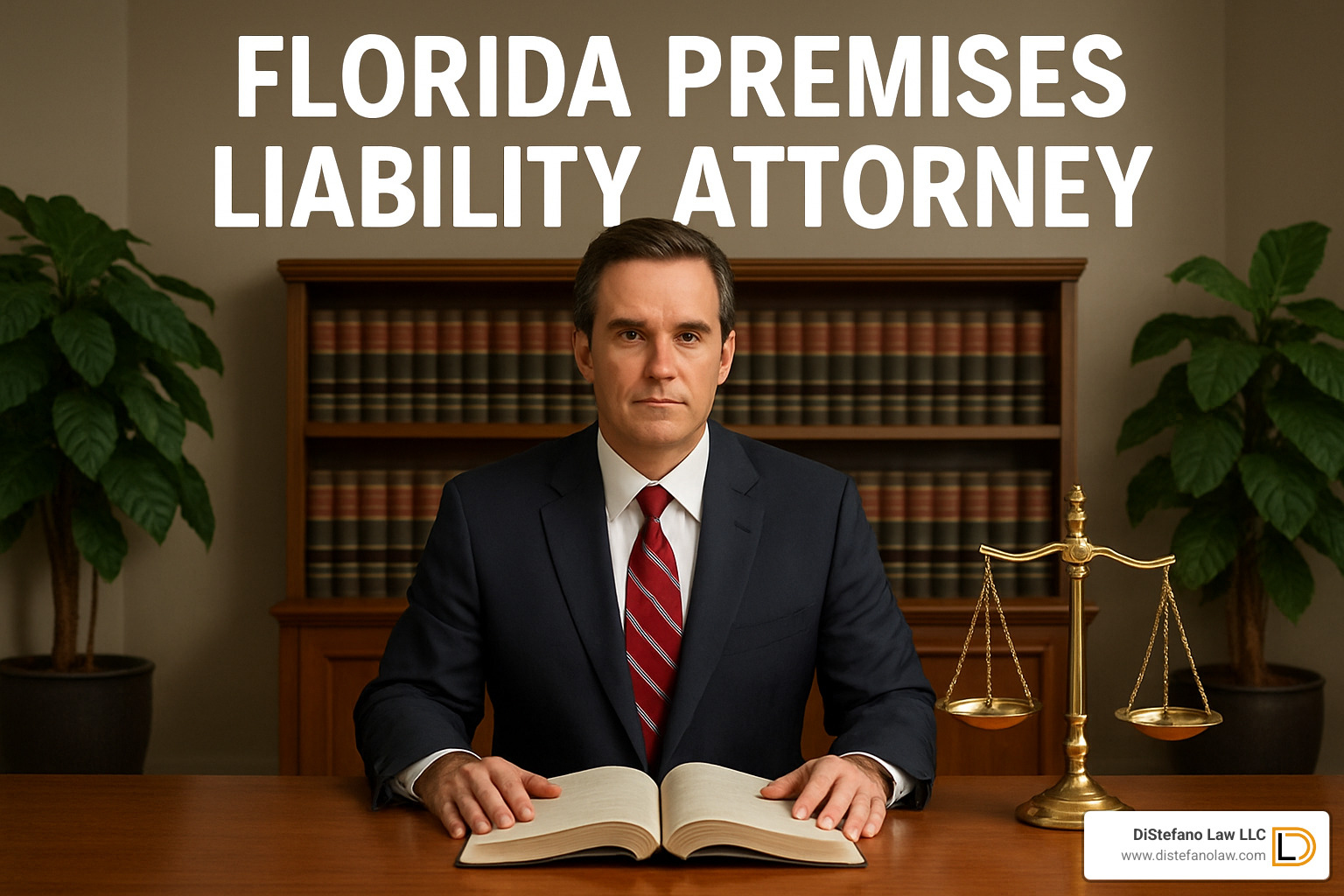
Let’s talk about something that might not be the most exciting topic, but could literally make or break your case: the legal nuts and bolts of Florida premises liability law.
First things first – time is not your friend after an injury. Florida gives you just 2 years from your accident date to file a lawsuit under Florida Statutes § 95.11(4)(a). Miss this deadline by even a day, and you might as well have never had a case at all. I’ve seen too many deserving people lose their rights simply because they waited too long, thinking they had plenty of time.
Got hurt on government property like a city park or public building? The clock ticks even faster. You’ll need to file a special notice within 6 months and then patiently wait for a response before moving forward with a lawsuit. This extra step trips up many people who don’t have proper legal guidance.
For those slippery situations in businesses – like the classic “spilled milk in aisle three” scenario – Florida Statutes § 768.0755 creates some additional problems. You can’t just prove you fell; you need to show the business either knew about the hazard or should have known about it. This often comes down to proving how long that puddle was sitting there or showing that spills happen regularly in that area.
Comparative Negligence Explained
“But weren’t you looking at your phone when you fell?”
Get ready to hear questions like this from insurance adjusters. That’s because Florida uses comparative negligence rules that can chip away at your compensation based on your own role in the accident.
Here’s how it works: if a jury decides you’re partially responsible for your injury, your compensation shrinks by that percentage. So if you’re awarded $100,000 but found 30% at fault (perhaps because you were distracted by a text message), you’d receive $70,000 instead.
Even more critical is Florida’s relatively new 50% bar rule. If you’re found to be more than half responsible for your accident, you can’t recover a single penny. This makes having a skilled Florida premises liability attorney absolutely essential – we work to ensure your actions aren’t unfairly magnified while the property owner’s negligence is minimized.
Common situations where you might face these arguments include texting while walking, ignoring warning signs, venturing into restricted areas, wearing flip-flops on wet surfaces, or having had a few drinks before your accident.
Assumption of Risk & Open-and-Obvious Doctrine
“Well, you could clearly see that giant hole in the ground, so why did you walk toward it?”
Property owners love to use the open and obvious doctrine as a shield. This defense suggests they shouldn’t have to warn you about dangers that any reasonable person could spot. Similarly, the assumption of risk defense argues that you voluntarily accepted the danger – like choosing to walk across visibly icy steps.
But don’t let these arguments discourage you. These defenses aren’t bulletproof. Even when a hazard seems obvious, property owners may still be liable if:
- The dangerous condition was impossible to avoid
- They should have anticipated people would get hurt despite seeing the hazard
- They actually created the dangerous condition themselves
Interestingly, scientific research on risk perception shows we often underestimate familiar risks. Environmental factors like poor lighting, distractions, or being in a hurry can prevent even the most cautious person from noticing “obvious” dangers.
The reality is that premises liability cases in Florida involve a delicate dance of deadlines, duties, and defenses. Having someone in your corner who understands these complexities can make all the difference between walking away with nothing and receiving the compensation you truly deserve.
Florida Statutes § 768.0755
Florida Statutes § 95.11(4)(a)
Proving Your Claim: Evidence, Documentation & Next Steps
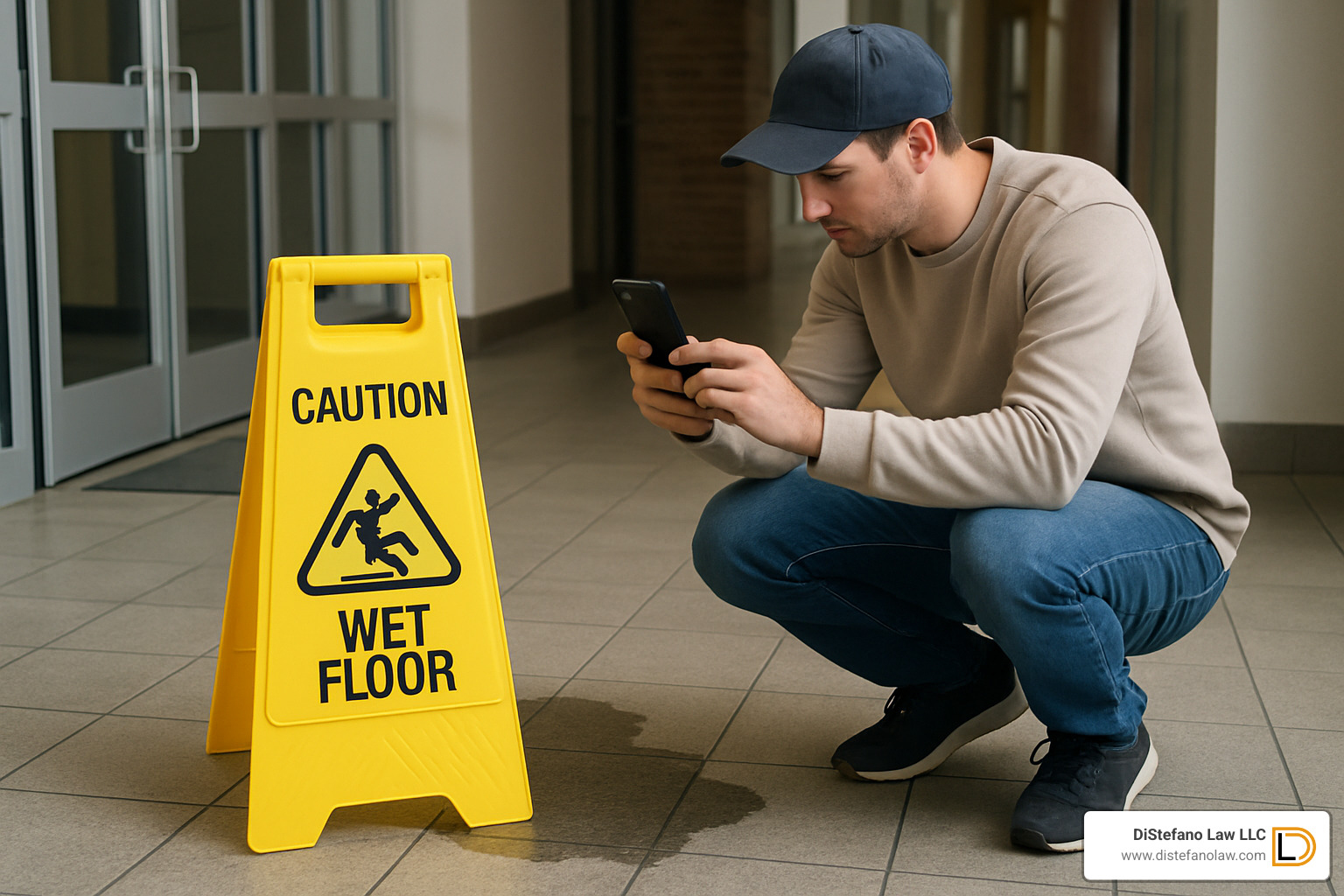
When you’re injured on someone else’s property, the strength of your case often comes down to what you can prove. Think of yourself as a detective gathering clues that tell the story of what happened to you.
What To Do Immediately After an Injury
The moments right after an accident are crucial, though I understand they can be chaotic and painful. If you’ve been injured, your first priority should be your health. Seek medical attention immediately, even if your injuries seem minor at first. Some serious conditions, like concussions or internal injuries, don’t always show symptoms right away.
Once you’re safe, report the incident to whoever’s in charge—a store manager, property owner, or security personnel. Ask for a copy of any incident report they create. This creates an official record that can be invaluable later.
If you’re able (or have a friend who can help), take photos of whatever caused your injury before it gets cleaned up or fixed. That wet floor with no warning sign? That broken stair? That loose railing? Document it from multiple angles. These photos might be your only chance to preserve the scene as it was when you were hurt.
Gathering witness information can make a huge difference in your case. People who saw what happened can provide unbiased accounts that support your version of events. Just a name and phone number can be enough to follow up later.
Don’t toss out the clothes or shoes you were wearing. Preserve these items exactly as they were—don’t wash or repair them. The substance you slipped on might still be visible on your clothing, providing crucial evidence about what caused your fall.
In the days that follow, start a simple journal documenting your pain levels, limitations, and how your injuries are affecting your daily life. This personal account can help show the real impact of your injuries beyond just medical bills.
Contact Us for a Free Consultation
Building a Strong Negligence Case
As your Florida premises liability attorney, we’ll help gather additional evidence that might be harder for you to access on your own. We’ll send formal spoliation letters to property owners demanding they preserve all relevant evidence, especially surveillance footage that might have captured your accident. These videos can disappear quickly if not properly requested.
We’ll collect crucial documentation including:
- Medical records that connect your injuries directly to the accident
- Maintenance and cleaning logs that might show negligence
- Prior complaints about the same hazard
- Building code violations or inspection reports
- Employee statements about conditions at the time of your accident
For serious cases, we often bring in expert witnesses who can strengthen your claim. Safety engineers can identify code violations that the average person wouldn’t recognize. Medical experts can explain how your injuries will affect you long-term. Economic specialists can calculate the full financial impact of permanent injuries.
We may arrange a professional site inspection to identify additional hazards or maintenance failures that weren’t immediately obvious. Sometimes we’ll conduct historical research to uncover previous similar incidents at the same location—a pattern that shows the owner knew about recurring problems but failed to address them.
Evidence preservation is time-sensitive. Security camera footage might be automatically deleted after a few days. Witnesses’ memories fade. The hazard that caused your injury might be quickly repaired. That’s why contacting a Florida premises liability attorney promptly can make such a difference in the outcome of your case.
The burden of proof falls on you as the injured party. Building a compelling case requires both immediate action and professional legal guidance to ensure nothing falls through the cracks.
How a Florida Premises Liability Attorney Strengthens Your Case
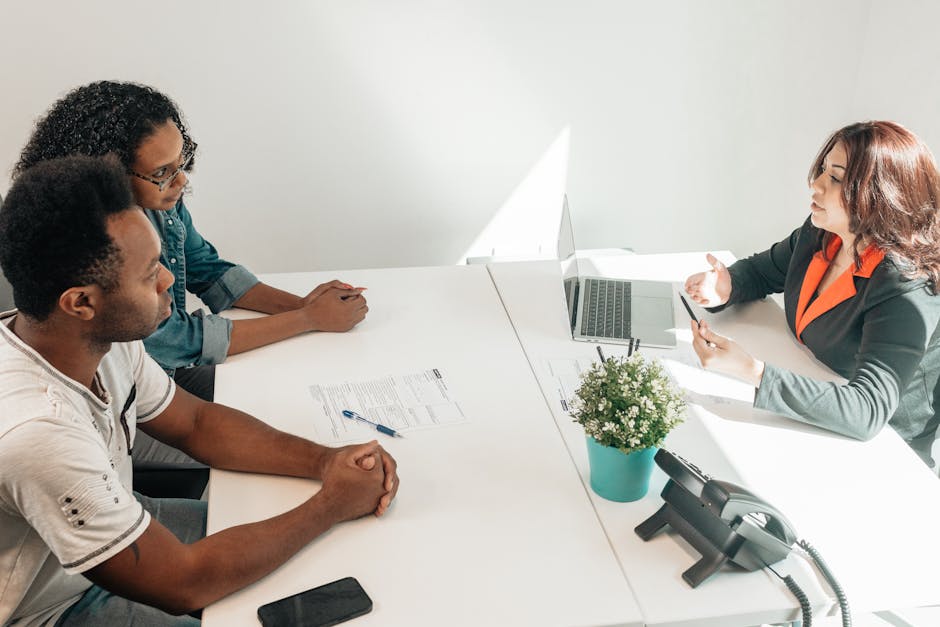
When you’re dealing with the aftermath of an injury on someone else’s property, having a Florida premises liability attorney by your side can make all the difference. Think of us as your guide through what can be a confusing and overwhelming process.
At DiStefano Law LLC, we don’t just file paperwork – we become your advocate and partner. We start by sitting down with you to understand exactly what happened, listening to your story with genuine care. From there, we develop a legal strategy custom specifically to your situation, identifying everyone who might be responsible and all possible sources of compensation.
Our investigation goes far beyond what most people can do on their own. We know exactly what to look for and how to get it – whether that’s tracking down surveillance footage before it’s deleted, obtaining internal maintenance records that show neglect, or interviewing employees who might have witnessed similar hazards before your accident.
“The evidence we uncover in the first few weeks often becomes the cornerstone of a successful case,” says Attorney DiStefano. “That’s why we encourage people to call us as soon as possible after an injury.”
We’ve built relationships with respected experts in various fields who can strengthen your case. These include safety engineers who can testify about code violations, medical specialists who can explain how your injuries will affect you long-term, and economic experts who can calculate the true lifetime cost of a serious injury. This expert network is an invaluable resource that most individuals simply don’t have access to.
Insurance companies have teams of adjusters and lawyers working to minimize what they pay you. We level the playing field. We handle all communications with these companies, preventing them from using tactics designed to get you to accept less than you deserve. We know their playbook because we’ve seen it hundreds of times before.
Many injury victims significantly underestimate what their case is worth. We ensure everything is accounted for – not just your current medical bills, but future treatments you might need, lost earning capacity if you can’t return to your previous job, and fair compensation for your pain and suffering. This comprehensive approach often results in settlements many times larger than what insurance companies initially offer.
While most cases settle without going to court, we prepare every case as if it will go to trial. This thorough preparation often motivates insurance companies to make better offers, and if they don’t, we’re ready to fight for you in the courtroom.
Perhaps best of all, you don’t pay us unless we win your case. Our contingency fee structure means our interests are perfectly aligned with yours – we only succeed when you do. This removes the financial barrier that prevents many people from getting quality legal representation.
When to Call a Florida Premises Liability Attorney
You should reach out to us as soon as possible after any injury on someone else’s property, but it becomes especially crucial if you’re facing:
Serious injuries that require significant medical treatment or might affect you long-term. The more severe your injuries, the more the insurance company will fight to minimize your compensation.
Denied responsibility from the property owner who claims they did nothing wrong or tries to blame you entirely for what happened.
Inadequate settlement offers that won’t come close to covering your expenses and losses, or outright claim denials.
Multiple potentially responsible parties, such as situations involving property owners, management companies, and maintenance contractors, which complicate who should pay.
Government property incidents, which involve special notification requirements and shorter deadlines that can forever bar your claim if missed.
Permanent disabilities or disfigurement that will affect you for life and require special consideration for future needs.
Significant lost income from being unable to work during recovery or having to change careers due to your injuries.
The clock starts ticking the moment you’re injured. Evidence disappears, witnesses’ memories fade, and legal deadlines approach. The sooner we can get started, the stronger your case will be.
Questions to Ask Your Florida Premises Liability Attorney in a Free Consultation
Your initial consultation isn’t just for us to evaluate your case – it’s also your opportunity to evaluate us. Here are some thoughtful questions to help you determine if we’re the right fit:
“What experience do you have with cases like mine?” Look for specific examples of similar premises liability cases and their outcomes, not just general personal injury experience.
“What potential challenges do you see in my case?” A good attorney will be honest about difficulties rather than making unrealistic promises.
“Who will I be working with day-to-day?” Make sure you’re comfortable with the attorney or team member who will be your regular contact.
“How will we communicate throughout my case?” Understand how often you’ll receive updates and through what methods (phone, email, text).
“Can you explain your fee structure completely?” Ensure you understand not just the contingency percentage but also how case expenses are handled.
“What timeline should I expect?” While every case is different, an experienced attorney should be able to give you a general idea based on similar past cases.
“Are you prepared to take my case to trial if necessary?” Some attorneys rarely go to court, which can affect how seriously insurance companies take their demands.
“How can I help strengthen my case?” A collaborative approach often leads to better outcomes.
At DiStefano Law LLC, we welcome these questions and any others you might have. Our goal is to make you feel comfortable and confident in your choice of legal representation during this challenging time.
Frequently Asked Questions about Florida Premises Liability
What compensation can I recover?
When you’ve been injured on someone else’s property, understanding what compensation you might be entitled to is often one of the first questions on your mind. The good news is that Florida law allows for recovery of a comprehensive range of damages.
Your medical expenses form the foundation of most claims. This includes everything from your initial emergency room visit to surgeries, medication, physical therapy, and even future medical care you might need. We’ve helped clients recover costs for specialized treatments and long-term rehabilitation that insurance companies initially refused to cover.
Lost income matters tremendously when you’re unable to work. Whether you missed a few weeks of paychecks or can no longer perform your job at all, we fight to recover those lost wages and, if necessary, compensation for your diminished earning capacity in the future.
The physical pain and emotional suffering you’ve endured deserves recognition too. These “non-economic” damages often represent the largest portion of premises liability settlements, especially in cases involving permanent injuries or significant life changes. We work with you to document how your injuries have affected your daily activities, relationships, and overall enjoyment of life.
For married clients, we also pursue loss of consortium claims to address how your injuries have impacted your relationship with your spouse. And don’t forget about tangible items damaged in the accident – from broken phones to torn clothing – these costs can be included in your claim as well.
Every case is unique, and the value depends on factors like injury severity, long-term prognosis, your age and career trajectory, and the strength of liability evidence. During your free consultation, we can provide a more personalized assessment of your potential recovery.
How does comparative negligence affect my payout?
Florida operates under a comparative negligence system that can significantly impact your compensation. Here’s the straightforward truth: if you’re found partially responsible for your accident, your compensation will be reduced by that percentage – but only up to a point.
For example, imagine you slip on a wet floor in a restaurant where there was no warning sign, but you were looking at your phone when it happened. If your total damages are $100,000, but you’re found 20% at fault for not watching where you were walking, your recovery would be reduced to $80,000.
The critical threshold to understand is 50%. Under Florida’s relatively new comparative negligence law, if you’re found to be 51% or more responsible for your own injury, you cannot recover any compensation at all. This makes having skilled legal representation absolutely essential.
Insurance adjusters are trained to look for ways to assign blame to injured people. Common allegations include that you weren’t paying attention, ignored warning signs, wore inappropriate footwear, or were somewhere you shouldn’t have been. I’ve even seen cases where insurers tried to blame a client’s choice of shoes for a fall caused by a completely unmarked hazard!
At DiStefano Law LLC, we anticipate these tactics and build evidence to minimize your assigned percentage of fault. Our experience with hundreds of similar cases helps us protect your right to fair compensation.
Who can be held liable besides the property owner?
Property owners aren’t always the only ones responsible for unsafe conditions. In fact, premises liability cases often involve multiple potentially liable parties, which can actually work in your favor when seeking full compensation.
Property managers often bear significant responsibility, especially in commercial or multi-unit residential buildings. When they fail to implement proper inspection protocols or ignore maintenance requests, they can be held accountable alongside the owner.
Tenants and business lessees typically have responsibility for conditions inside their rented space. So if you slip and fall inside a retail store, the business operating there – not just the building owner – may be liable.
Maintenance contractors like cleaning companies, landscapers, or repair services can create hazards through negligent work. We’ve handled cases where a floor cleaning company left surfaces dangerously slippery or a maintenance worker created a tripping hazard and failed to warn visitors.
In negligent security cases, security companies hired to protect the premises may share liability if their personnel weren’t properly trained or failed to follow established protocols.
Government entities can be responsible for injuries on public property, though special notice requirements and immunity protections apply. We know how to steer these complex claims within the strict deadlines.
Even product manufacturers might bear partial responsibility if a defective product on the property contributed to your injury.
Identifying all potentially liable parties isn’t just about casting a wide net – it’s a strategic approach that can make the difference between partial and full compensation, especially when one defendant has limited insurance coverage.
Having a knowledgeable Florida premises liability attorney thoroughly investigate your case ensures no responsible party escapes accountability for your injuries.
Conclusion & Next Steps
When you’ve been injured on someone else’s property, understanding Florida’s premises liability laws becomes more than just legal theory—it becomes your pathway to recovery and justice. Property owners have clear responsibilities to keep their premises safe, but proving they fell short requires both evidence and legal expertise.
At DiStefano Law LLC, we’ve spent over 40 years walking alongside injured clients throughout Fort Lauderdale and South Florida. We know these cases aren’t just about legal arguments—they’re about real people facing real hardships. That’s why we combine aggressive legal representation with the personal touch you deserve during this challenging time.
As you consider your next steps, keep these crucial points in mind:
Time is truly of the essence. Florida’s 2-year statute of limitations means the clock starts ticking the moment you’re injured. Waiting too long can permanently close the door on your right to compensation.
Documentation is your strongest ally. Those photos you took at the scene, the medical records detailing your treatment, the names of witnesses who saw what happened—all of these pieces create the foundation of your case. If you haven’t gathered these yet, start now.
Be extremely cautious when speaking with insurance adjusters. Their job is to save their company money, not to ensure you’re fully compensated for your injuries. What might seem like a friendly conversation could actually undermine your claim.
Your status as a visitor matters enormously. The law provides different protections depending on whether you were invited for business purposes, visiting socially, or perhaps on the property without permission. This classification fundamentally shapes your case.
Never downplay what happened to you. What appears to be “just a fall” can result in injuries that affect you for years to come. Many of our clients initially thought their injuries were minor, only to find long-term complications weeks or months later.
If you or someone you care about has been injured on another person’s property, we invite you to reach out to our Florida premises liability attorneys for a free, no-pressure consultation. We’ll listen to your story, evaluate the strength of your potential claim, and help you understand what compensation might be possible in your specific situation.
We work on a contingency fee basis—a simple promise that you’ll pay nothing unless we recover compensation for you. This approach allows you to focus on healing while we handle the complex legal work of building your case.
Learn More About Our Slip-and-Fall Representation
Don’t let uncertainty or hesitation prevent you from protecting your rights. The sooner you reach out to DiStefano Law LLC, the sooner we can begin preserving evidence, interviewing witnesses, and building the strongest possible case for the compensation you truly deserve.
Your recovery journey matters to us. Let’s take the next steps together.


